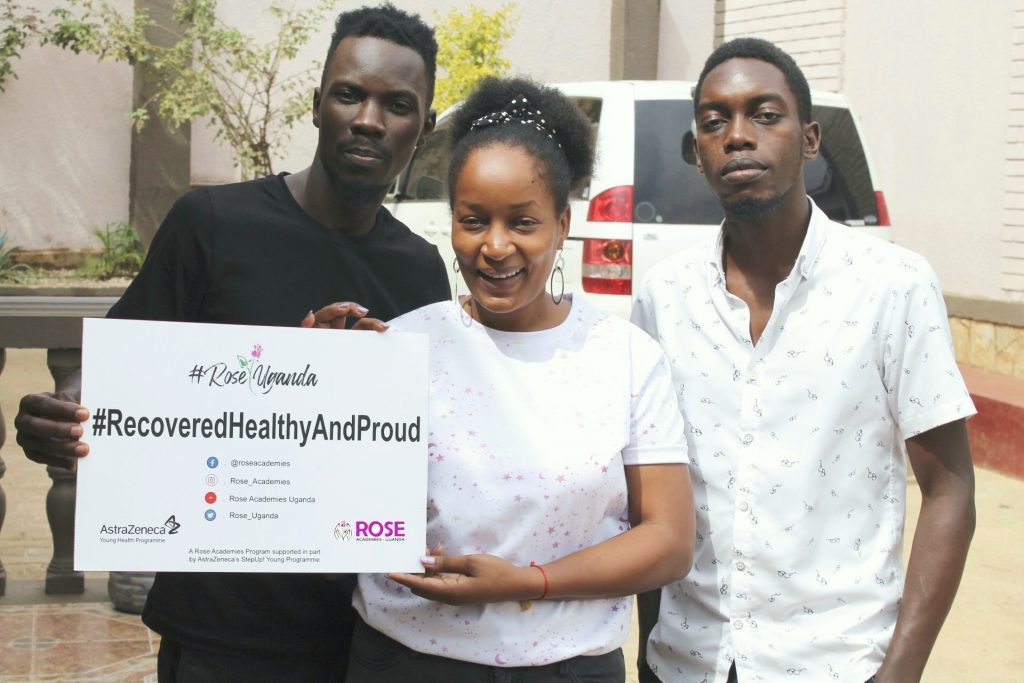#RecoveredHealthyAndProud is the message that Rose Academies-Uganda is sending out via social media to youth throughout the east-African Republic of Uganda, where three quarters of the population is under 30.
Twenty percent of Ugandan youth drink heavily due to its cultural acceptance and the availability of inexpensive, homemade brew. Alcohol and drug use has increased during the COVID-19 pandemic. Most youth live in poor, rural villages, where they are unemployed or underemployed.
The Santa Clara-based nonprofit Rose Academies, (https://www.roseacademies.org)
in agreement with the Uganda Ministries of Education and of Health, has launched an innovative campaign to make youth in Uganda aware of the personal and social pitfalls of alcohol and drug abuse.
The Rose-Uganda Creative Arts Team (RUCAT) engages youth through the creative arts — dance, drama and music.
Audio and video programs are already airing over social media. As pandemic restrictions ease, live performances and workshops will be presented in villages.
RUCAT members — locally-recruited volunteers — include young street artisans, a journalist and a talk show host on Spirit TV. They are proud to initiate the #RecoveredHealthyAndProud campaign.
“We are providing each one a platform for career development, so they can pursue employment elsewhere with these new skills. Each one is very excited to be part of our Rose Team,” said Rose Academies-Uganda CEO Susan Stasi, a lifetime Santa Clara resident.
“It’s basically a program by Ugandans for Ugandans. I want it to be sustainable so that the programs continue long after we are gone. That’s what really makes us unique.”
A $10,000 grant from the AstraZeneca Young Health Programme funds the RUCAT program for one year, beginning April 1, 2021.
Rose-Uganda, headquartered in the capital city of Kampala, has two other programs.
Program Director Clare Ainomugisha works with Rose-Uganda Fellows, paid small stipends, to bring neonatal health and nutrition programs to clinics in three rural regions of Uganda. Fellows also conduct healthcare and nutrition workshops for persons with disabilities.
“All of our programs are designed to empower young adults to become community leaders while improving healthcare education of the rural poor,” said Stasi, who last travelled to Uganda in 2019. “I’m so proud of them as they are literally saving lives every day.”
Rose-Uganda currently has 16 team members facilitating its programs. Its outreach, limited only by its shoe-string budget, is successful, in part, because of collaboration.
Students at the Texas A&M School of Public Health developed a library of healthcare storybooks.
Students at Santa Clara University’s Frugal Innovation Hub developed health education application programs for mobile phones and tablets.
“Our partnership with Santa Clara University has been instrumental in our program development. Due to their efforts, we are revolutionizing the field of education for the rural poor.
“We are taking technology into rural communities that lack modern day services and teaching simple, basic healthcare,” said Stasi. “And it’s working. They are learning.”
Uganda is about 93,000 square miles, making it just under 60 percent the size of California at almost 156,000 square miles. Its population, estimated by United Nations, approaches 47 million. It hosts the most refugees in Africa.
